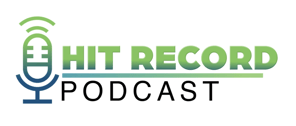Episode 61 - Using AI to Create Digital Ads that Really Convert for Your Bank or Credit Union


Don't Miss An Episode, Subscribe Now

Meredith Olmstead and Ida Burr, of FI GROW Solutions, explore the dynamic intersection of Artificial Intelligence (AI) and digital advertising, shedding light on how this technology can be leveraged to enhance marketing strategies. They discuss the practical applications of AI in creating and optimizing digital ad campaigns, emphasizing its role in not just streamlining the process but also in adding a layer of sophistication and effectiveness.
Key Takeaways:
1. Evolution and Integration of AI in Digital Ads: AI is not a new concept in digital marketing. Tools like Google have long utilized AI for keyword suggestions and ad campaign optimization. However, recent developments, such as chatbots and tools like Google Bard and ChatGPT, have introduced more interactive capabilities.
2. AI as a Tool for Enhancing Creativity and Efficiency: AI tools are being used to enhance the creative process in developing digital ads. By analyzing specific landing pages, these tools can suggest appropriate keywords, headlines, and ad descriptions that match the content.
3. Strategic Application and Limitations of AI in Ads: While AI can significantly aid in the ad creation process, it's essential to use these tools strategically. Marketers should not rely solely on AI-generated content; it should be treated as a starting point or inspiration.
Transcription:
If you're looking for best practices for your bank or credit union, join us while we talk all things sales, marketing, and strategy for financial institutions. Let's make it happen with FI GROW Solutions.
Meredith Olmstead:
Hi there. I'm Meredith Olmstead, CEO and founder of Fi Grow Solutions. I am here with Ida Burr. Ida is our digital ads manager and guru. Say hi, Ida.
Ida Burr:
Hey everyone.
Meredith Olmstead:
So when we work with banks and credit unions on digital marketing and sales, Ida does all of our ad campaigns and all of the reporting and the strategy for all of our various clients, both credit unions and banks. Ida and I were just having this awesome conversation about something that is super, super top of mind for a lot of marketers out there right now and it is AI, and specifically artificial intelligence.
We were talking about how to use AI more effectively in what she does, which is the digital ads for our clients and all of those campaigns, as well as really trying to prove results and reporting those results and closing the loop on paid leads coming in, and then turning them into new accounts and new loans. So I was like, "You know what, Ida? Let's hit record on this conversation. I think this is really interesting. Super, super top of mind for people, very relevant." So I really want to understand how our clients, and then you all hopefully, can better use AI in the process of creating digital ads that actually convert and positively impact your bottom line.
So tell me really quickly, Ida, if we're talking about AI and ads, is AI brand new to digital ads? I mean, is this like it's not been used up until just recently? Tell me a little bit about where we are with AI and digital ads.
Ida Burr:
So the ability to interact with AI and get your answers question is kind of new, but realistically, Google and other sources have been using AI for a very long time in terms of if you're typing a sentence into Google, it starts to populate with what people usually search for when they start typing those words; or even if you think about the algorithms that Facebook and Google and Instagram use when putting together ad campaigns and trying to show up in front of really a person who's most likely going to click. So AI isn't a brand new topic per se to marketers and marketing in general, but these new chat bots now have added a little bit more of an interaction to it.
Meredith Olmstead:
Gotcha. So basically, AI has been out there for years with Google. We see it. You also mentioned something about how Google uses AI, or some AI technology and algorithm technology, to already give you suggestions for keywords and to help you add in additional keywords when you're in there making digital ads for pay-per-click ads at least. So we know that AI has been around for a long time, absolutely. But I think what we're really seeing is with the rise of ChatGPT and all of these other AI-driven chat or interactive kinds of tools, we're seeing a lot more opportunity to use this pretty cool technology to make our jobs a little easier, and also really just find some really solid ideas or inspiration for making better quality ads that convert.
So if we're talking about AI and how you are using it because I know you said over the last few months you've really been playing more in this space. Let's start first with pay-per-click because that's one that a lot of people spend a ton of money on. So for Google pay-per-click, what are you doing with AI tools to help you create better quality ads and campaigns?
Ida Burr:
I like to use Google Bard. It's one, I think ChatGPT is one of the most popular ones, but I don't know. I like to stick to Google with Google Ads and everything, but with the Bard chat, I actually can drop a URL into the chat and ask it, "Can you help me come up with keyword ideas for this landing page?" And then it'll shoot out a list of popular search terms that match the landing page, which is another important thing you have to think about when making ads in Google.
One part of it is, are the keywords you're showing up for matching the actual landing page people are going to? So that really helps you get those high quality keywords that are linked. I also will even use it sometimes for headline and the description ideas. So, it could look at that same URL and shoot out a few headlines that would be good for the Google Ad as well as a few descriptions that they pull from that URL.
Meredith Olmstead:
Are you finding that those ideas that come from one of those tools are better? Or are they different than your own ideas or the ones that Google would suggest in that same scenario? Is it really making your life a little more efficient or is it adding more topics or keywords that you wouldn't have otherwise come up with?
Ida Burr:
Yeah. So with the tool, what I see a lot is it's a lot of keywords that strongly match the landing page, and when you're creating these ads in Google, they want a variation of keywords. They want branded keywords. They want unique keywords that are not related to the keywords, but then they also want those very targeted keywords that are on the landing page. So just getting a list of those and getting different variations of those as well, so we have a few different options has been helpful.
Meredith Olmstead:
So it's like if you're having a little brain fog that day, this kind of a tool will help cut through some of your... You might have a writer's block on some ideas or not remember all of the different possible variations of a keyword or a product or service, and this helps spark that and makes it a little faster and more efficient?
Ida Burr:
Yeah, exactly.
Meredith Olmstead:
The other thing you said that I thought was really interesting about pay-per-click was what you do with the tool if you're looking at a new market or region, but you don't have a client set up in that region yet, or you've never run that specific product line in that region.
So, for example, if you are in, say you're working with somebody in Portland, Oregon and they've brought all their credit cards in-house to the financial institution and they want to promote those to try to get a little bit more business maybe for the credit cards around the holidays, or something like that, but you've never run credit card ads for that specific targeted zip code area, how are you using your Bard or whatever AI to help with that scenario?
Ida Burr:
You can type right into the chat and just say, "How many people in this area are searching for credit cards or searching for low interest credit cards?" - what are the different keywords people are searching for in this area? It can spit out a list of keywords and search forecast for that as-
Meredith Olmstead:
Oh, wow.
Ida Burr:
... well for that specific area.
Meredith Olmstead:
So it can actually start to even unpack the idea of what kind of search volume there is potentially helping you decide what kind of budgets you should be starting for or starting with?
Ida Burr:
Mm-hmm.
Meredith Olmstead:
That's cool. So that's pay-per-click. Now, in terms of social media ads, you said, similarly, you can put in a URL and it'll give you some ideas, but you can actually specifically ask for a Facebook Ad or an Instagram ad?
Ida Burr:
Yeah. I will put the URL in and say, "Can you help me make a Facebook ad with this for this landing page?" It will come back with a few suggestions for description, for the main text at the top for the headline, what kind of call to action you should be using, so it knows the list of call to actions that are available.
It also you can go through with Bard. They give you a few suggestions. So if you don't like the first one, I'll go through them and sometimes combine a couple of different suggestions. But yeah, it does help you come up with a catchy headline that'll help you describe the product in a short enough space, so you don't have that... like read more on the top above the image. So it is cool that it keeps in mind the character count and tries to use really efficient language that's catchy.
Meredith Olmstead:
Cool. So what are some of the things people need to be wary of when they're using AI around creating digital ads? I'll say the first one because we see people who aren't robots, or whatever we want to call the AI technology, doing this. They'll jump in and immediately start using branded keywords like the name of the institution. So my guess is if you're putting in a URL of a bank or a credit union, some of the keywords that AI might suggest might include the name of the institution.
That would be an example of something where we would recommend to our clients you don't do that. Because unless for sure you have a competitor bidding for your name, you really should not pay for branded keywords because those are going to be terms that... like your name is going to be something people who are already looking for you would type in. You don't want to pay for that traffic. So that's the one thing I would say is to avoid using: don't use a branded keyword suggestion even if the AI gives you that as an idea for a headline or for a keyword. But what are some other things that people should be wary of when they're thinking about using AI?
Ida Burr:
I definitely use AI as inspiration. I don't take anything it gives me in its entirety and just use that. It is strictly inspiration. I change up wording. I will try to keep the voice and the brand of the credit union or bank in mind trying to just adjust it so it doesn't sound... Sometimes it could just sound very robotic like not a lot of emotion in the text. So I definitely would not suggest just taking every single thing it tells you and throwing it up into an ad.
Meredith Olmstead:
So you still have a job is what you're saying, that this isn't going to replace an individual's ability to... or need the need for an individual who has strategic knowledge of these products and services to come in and make edits and changes. There's also two compliance issues (right?) that you could run into-
Ida Burr:
Yeah.
Meredith Olmstead:
... with AI. Have you seen anything specific that comes to mind that you've had to remove because of a compliance issue?
Ida Burr:
Well, just keeping in mind the basics like making sure if you're including a rate that the disclaimer is a click away, just things like that that the AI probably wouldn't even think about, making sure that those types of things are all lined up
Meredith Olmstead:
And that you're not making promises you can't deliver on in the ad. You want to make sure that whatever the ad copy is, that it lines up pretty straightforward with whatever the user finds on the page that they go to. Some of that user journey kind of knowledge, AI may not take into consideration when they're writing their ads. You don't want to over-promise something or under-promise in an ad. You want to make sure that you're really hitting the key benefits of the product that are going to make somebody click through and give it proper consideration. Cool. Anything else you can think of around AI?
Ida Burr:
I think using it as inspiration, it's been a really great tool. If you asked me four months ago if I used AI at all, I would tell you no, but now that I've been playing around with it and figuring out ways that could be useful has been interesting.
Meredith Olmstead:
It's funny. I was thinking that same thing. I remember when we were talking about we have a lot of people on our team using AI a lot for inspiration for ideas, for concepts, to outline for writers, all those kinds of things, and I think were... The digital ad side of it, you were a little bit like, "Oh, I don't know if I want to dip my toes into this," but then you jumped in and I think you've found some benefits. So it's awesome. It is just great too to just for ideas really. Sometimes inspiration is just what you need to get going on things. So just a few key things to get you thinking and then you're off with the campaigns, but awesome.
Well, thank you so much, Ida. I really appreciate you sharing your knowledge. We mentioned a couple of the tools. ChatGPT is one of them that a lot of people know about. You also mentioned Google's Bard, which is another great tool that you're using pretty much daily. So, awesome places to start.
I hope you guys found some good inspiration from this conversation. If you want to learn more about digital ads or inbound marketing in general for banks and credit unions, visit us at figrow.com. We have lots of other podcast episodes and blogs as well as eBooks and case studies. We'd love for you to visit our website and learn more and, otherwise, let's just all get out there and make it happen.








Blog comments